Featured
Religion and the Development of a More Contextually Responsive Discipline: The Case of Indonesian Psychology
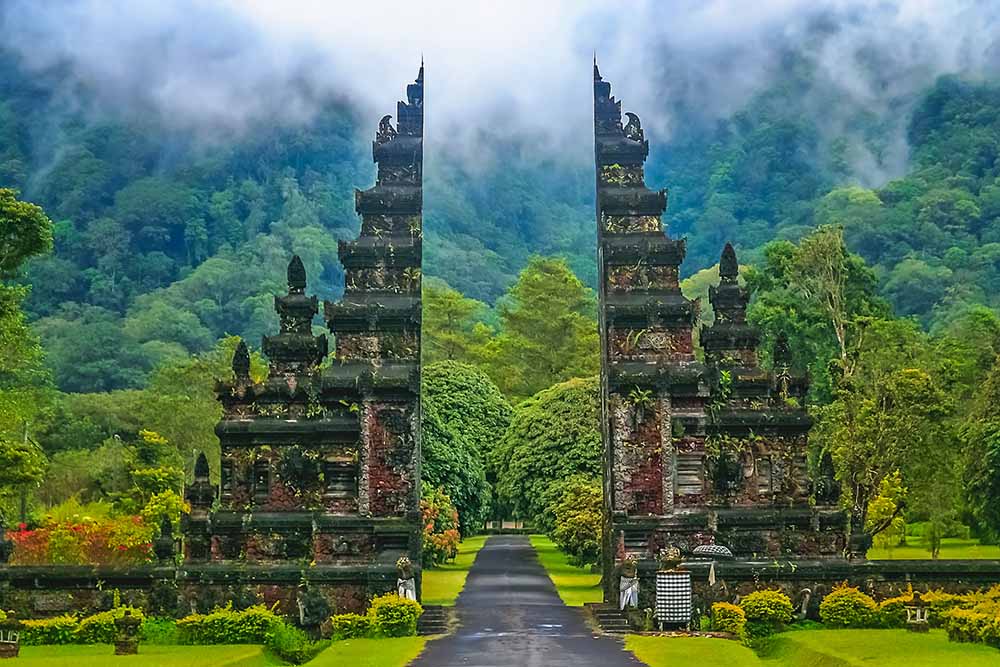
Above: Hindu temple in Bali, Indonesia. Getty Images
More than 80% of the world’s population lives in countries other than the United States, Canada, and Europe, which dominate psychological science nonetheless. The Global Spotlight series is a small step toward closing that gap. Authors across the globe—including in regions that have long been underrepresented in the research community—share unique and personal perspectives on the issues affecting their work and careers. In providing these on-the-ground narratives, we hope to illuminate concrete challenges and opportunities alike involving this truly global science.
Compared to other social sciences in Indonesia, the development of psychology as a formal discipline is relatively recent. The first department of psychology was established in 1960 at the University of Indonesia (Sarwono, 2004). At that time Indonesia was a young postcolonial nation (declared independent in 1945) struggling with a prolonged political and economic crisis. Therefore, in its early years, the country’s psychological research was primarily focused on fostering practical applications that could address the need for better healthcare and education systems (Sarwono, 2004). Discussions about developing Indonesian psychology as a science emerged later, as academics voiced concerns about westernized trends in which Indonesian research was mainly replicating studies produced in WEIRD [Western, educated, industrialized, rich, democratic] regions. These trends could be found in various study topics, ranging from individual and micro factors such as personality and parenting, to social factors such as intergroup relations. In response, senior scholars started to call for more locally situated psychological theories and methodologies (Dahlan et al., 2007).
Discussions of Asian psychology’s contextual features often cite religions and religiosity as a central element (Yeh, 2018). Similarly, an orientation toward religions and religiosity has been generally portrayed as a key feature of Asian epistemologies and ways of being (Wong & Chai, 2010). Indonesian psychological research has also emphasized the role of religions and religiosity, ranging from exploring contemporary developments in Indonesian indigenous belief systems to addressing the rise of religious fundamentalism and its societal impacts (Muluk et al., 2018). These studies have supported a greater contextual understanding of the role of religions and religiosity in Indonesian society. For example, in their series of studies on religious fundamentalism in Indonesia, Muluk et al. (2020) were able to explicate the phenomenon of religious-based terrorism through a complex lens intertwining Indonesian cultural factors and the role of cosmopolitan determinants in shaping the ways Indonesian terrorist groups operate. Contrary to previous literature on this topic, they found that relational factors tended to have more influence on the operations of Indonesian terrorist networks than ideological factors, reflecting the communal orientation of Indonesian culture and society.
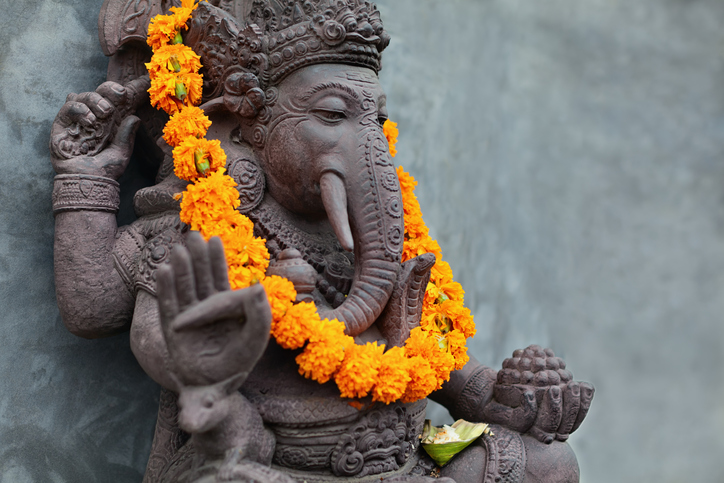
Although recent studies on religions and religiosity in Indonesia (such as those conducted by Muluk et al.) have made profound contributions to advancing Indonesian psychological science, research on this topic may continue to generate further contextual knowledge of psychology and religions in Indonesian society. One possibility is to explore the role of religions and religiosity as a liberating theology that promotes social transformations, decolonization, and self-determination. The evolution of global religions in Indonesia cannot be separated from the nation’s colonial history. Indonesia’s birth as an independent nation was the result of a national movement powered, in part, by people’s determination to resist the colonizers’ imposed belief systems (Fogg, 2016). This historical trajectory illustrates how religions and religiosity can function as a liberating root upon which collective acts and solidarities against injustice and oppression develop.
Exploring the role of religions and religiosity in fostering social transformation has great potential and is reflected in the emerging interest among Indonesian scholars to explore and reignite indigenous belief systems, including in the field of psychology. For example, psychology researchers at Gadjah Mada University (the second oldest psychology faculty in Indonesia) have led initiatives to develop academic programs (e.g., June 2022) and research (e.g., Kholik & Himam, 2015) specifically dedicated to study and disseminate the teachings of Suryomentaram, an indigenous philosopher who based his teachings on the Javanese belief system popularly known as Kejawen. During the colonization period, Suryomentaram’s teachings became a source of inspiration for Javanese people to support independence movements, as he advocated for Javanese ethics and philosophies that resisted the colonizers’ ways of being. For example, drawing on Javanese philosophy about social respect and responsibility, Suryomentaram developed his teachings on Pembangunan Djiwa Warga Negara (developing the soul of a nation), which was a call for fighting against colonialism (Bonneff & Crosley, 1993).
Another recent example of studies that illustrate the transformative role of religion and religiosity in Indonesian society is Madyaningrum et al.’s study on disability activism in Javanese culture (Madyaningrum et al., 2022), which was aimed at investigating the sociopsychological mechanisms through which people’s participation in disability organizations could facilitate personal and collective empowerment. Conducted in a rural Javanese context, this study suggested that Javanese religious teachings played a central role in shaping the ways participants described and manifested their meanings of being empowered, both as individuals and community members.
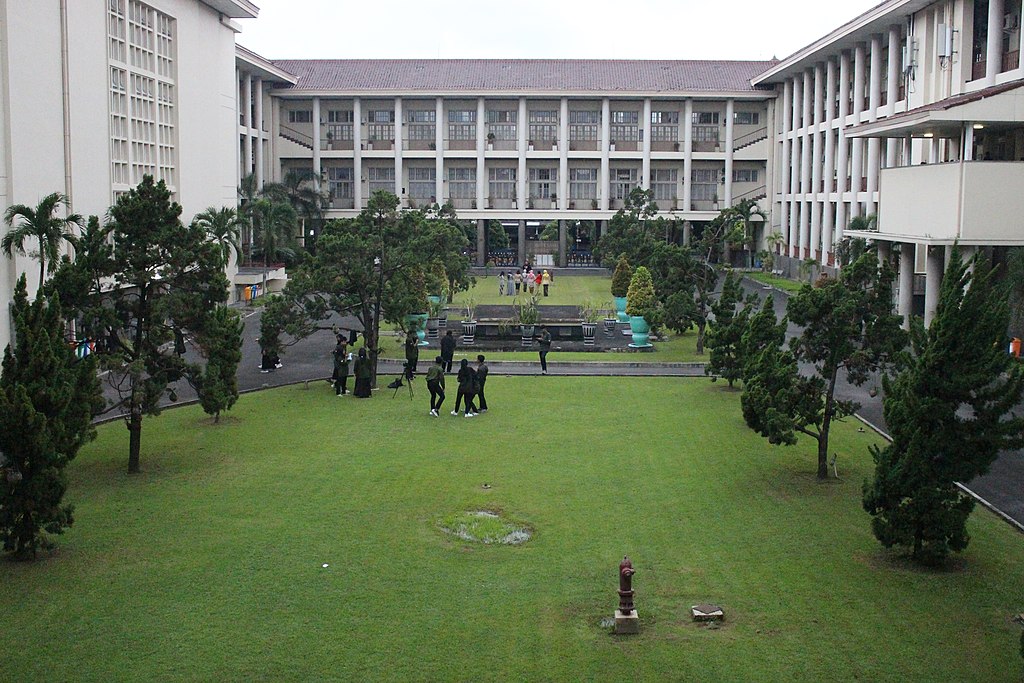
This growing interest in studying the transformative aspects of local religions and religiosity is not only important for the development of psychological science in Indonesia but also sociologically meaningful. Historically, the marginalization of indigenous belief systems in Indonesia was caused both by colonization and by traumatic events that marked the modern era of Indonesia. For example, in the mid-1960s, when Indonesia was a very young nation, a political tragedy known as the Indonesian Communist Purge cost the lives of hundreds of thousands of people. Most were affiliated or accused of affiliation with the Indonesian Communist Party, which at that time was one of the largest political parties in the country. After the purge, it became mandatory for every citizen to adopt one of the five formal religions acknowledged by the government (Islam, Buddhism, Hinduism, Protestantism, or Catholicism). Those who did not comply were at risk of being accused of supporting communist ideology and thereby subject to prosecution. Since then, the existence of indigenous belief systems as local religions has significantly diminished (Beatty, 1999). Strong state control over religion is also reflected in a national regulation obliging all citizens to state their religion on their national identity card. Given this political context, the emergence of scholarly initiatives that examine alternative epistemes rooted in Indonesian indigenous belief systems may have meaningful implications for restoring people’s understanding of and connections with their ancestors’ spiritualities.
This complex intertwining of religions and the country’s political contexts suggests the need for more nuanced studies of the role of religiosity in understanding Indonesian people’s personal and collective psyches. Recent studies on this topic also indicate that religion and religiosity should not be portrayed as static signifiers because they are continuously evolving with the country’s sociohistorical and political landscapes. Therefore, it is crucial to situate psychological studies on religions and religiosity in Indonesia within its past and current history.
The emphasis on the roles of religion and religiosity in studies of Indonesian people’s personal and collective psyches is also reflected in the establishment of religious-based psychological associations. These include the Islamic Psychology Association (API) and the Christian Psychology Association (APK), which were formed in 2002 (API) and 2017 (APK) as special-interest psychology associations under the parent organization of the Indonesian Psychological Association. (Note: the organizations’ Indonesian names are Asosiasi Psikologi Islami and Asosiasi Psikologi Kristiani, meaning “relating to” Islam/Christian.) Notably, three years after the establishment of the Islamic Psychological Association, one of its founders wrote in Reposition of Islamic Psychology:
“To position Islamic Psychology today as a part of psychology with a religious perspective, or a form of indigenous psychology, will be more easily accepted by non-Muslims and secularists.” (Subandi, 2005, page 13)
His counterpart in the Christian Psychological Association wrote in a letter:
“This association … is open to members of the Indonesian Psychological Association who have an interest in studies on issues related to Psychology and Christianity [to] be able to glorify God and improve the welfare of fellow human beings through the development of this Association in Indonesia.” (Pali, 2017)
Both suggest that there is a desire (a) for both Islamic psychology and Christian psychology in Indonesia to be open to and accepted by people outside their own religion, (b) not to see humans partially, but rather to understand and solve human problems holistically by considering their religious and spiritual dimensions, and (c) to remain relevant and rooted in the indigenous context. Again, it appears that the intersections between psychology and different religions aim not to narrow psychology but to share universal human values that are transcendental in nature and can broaden the empirical spectrum of psychology.
Since the establishment of the API and APK, higher education institutions in Indonesia have also developed specific study programs in Islamic and Christian psychology, joining earlier Islamic psychology courses in general psychology study programs at religion-based universities under Muhammadiyah and Nahdlatul Ulama (the two largest religious organizations in Indonesia).
The sectarian nature of the societies and programs in Indonesia contrasts with Division 36 of the American Psychological Association, namely the Society for the Psychology of Religion and Spirituality, which is an umbrella organization for members from more than one religion. A positive interpretation of this difference is that it reveals a need among the Indonesian people for specialized psychology pertaining to particular religions. For example, recent discourse within the API has involved establishing a certification of psychological counseling competence for Indonesians planning to perform the Hajj (a pilgrimage to Mecca). This confirms that Indonesia’s psychology of religion has its own artfulness distinct from other fields of psychology (clinical, forensic, industrial/organizational, educational, and so on).
In other words, Islamic and Christian psychology have an opportunity to lead the field of psychology in Indonesia, rather than letting it be led by WEIRD research. This may also undermine the perception of psychology as inferior in Indonesia. Compared with other disciplines such as medicine and sociology, psychology is less recognized at the national level. Consider the National Movement of the Mental Revolution, an Indonesian social movement—a topic of national interest to a 2014 Indonesian presidential candidate—that is attributed to a sociologist (Wirutomo, 2015), not a psychologist. Another example is the high status of medicine in Indonesia: Medicine often plays the “commander in chief” to psychology’s “foot soldier.” Mental health tests for presidential and vice-presidential as well as regional gubernatorial and vice-gubernatorial candidates, for example, are usually led by a medical doctor rather than a psychologist—psychologists can collaborate with the doctor. This is not surprising because the study of psychology in Indonesia was initially established as part of the department of medicine and only later became an independent department.
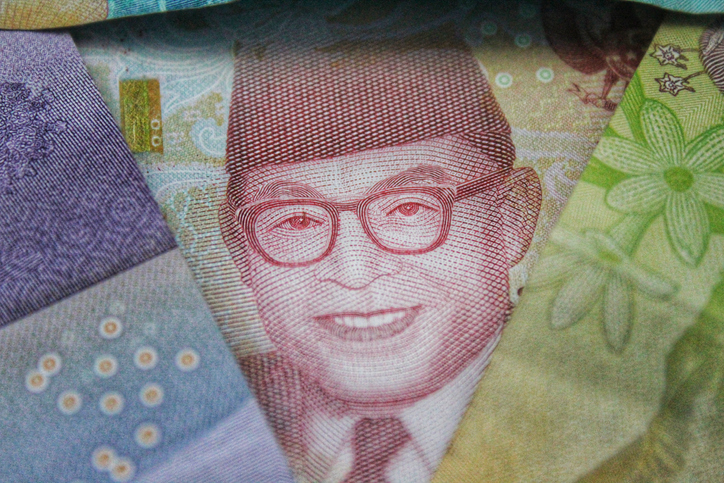
Nevertheless, others see the establishment of the API and APK as a potentially problematic development in Indonesian psychology because they could strengthen sectarianism and identity politics. In the last several years, Indonesia has faced the rising of religious intolerance and discriminations against religious minorities (Halili & Naipospos, 2015). The infamous case of Ahok’s blasphemy trial in 2016 was one among recent incidents that have raised concerns about religious-based sectarianism. Ahok, or Basuki Tjahaya Purnama, was Jakarta’s governor who was imprisoned for two years on a blasphemy charge following his controversial statement regarding a Qur’anic verse during the campaign for his second term candidacy (Mietzner, 2019). During the trial for this case, public discourse was heated by provocative opinions that pushed forward exclusivist politics based on majority-minority religious divide (Alam, 2017). This exclusivist political atmosphere intensified during the 2019 presidential election as religious sentiments were exploited for political gain. It is such a political context that has raised concerns about the development of religious-based psychological associations. This development seems contradictory to the urgency of promoting inclusive politics and culture in Indonesia. Such concerns are becoming stronger, especially since the API changed its name to a more primordial one, namely the Islam Psychological Association (no longer the Islamic Psychological Association), on the grounds that “the term Islam is a genuine term and was made by Allah swt” (Munawwir, 2016). Of course, this interpretation requires further scrutiny.
Another important marker of awareness about the central role of religion in Indonesian’s psychology was religious leaders’ October 2022 signing of the Lombok Declaration, which states, “religion has an important role in the prevention, treatment, and recovery of mental health problems … that neglect and discrimination against people with mental health problems is acts that are not justified by religion and belief.” The declaration is a follow-up to a preliminary report:
“Suicide [in Indonesia] is commonly classified as aib, which is a shame so deep, such that there is no English equivalent for the term … due to religion-based moralisation of suicide given that suicide is considered a deadly sin, and religion holding a central role in Indonesia’s society.” (Onie et al., 2022, p. 3)
Despite the promising role of religion in developing and liberating psychology, the scientific study of the psychology of religion in Indonesia is not yet well developed. This is evident in the dearth of scientific publications—for example, the APK does not publish any scientific journals, and the API experiences delays in publishing (the latest full publication was in 2021). These realities align with a statement by the University of Indonesia’s dean of faculty of psychology that ”psychology in Indonesia is currently being challenged to strengthen its theory and expand its application.” He stated that the problem with psychology in Indonesia is linked to the incorrect inquiries into human nature (lack of in-depth study of the phenomena) rather than methodological problems (inability to answer the right questions). It is alleged that Indonesian psychology researchers examine only human phenomena that are limited to their exteriority, tending to hurry to determine the boundaries of the phenomena and even formulate variables. This has further resulted in the absence of well-known scientific journals in the field of religion psychology in Indonesia, while there are already quite a number (more than 10) journals of Islamic studies, including general and nonpsychological journals, which have achieved the highest national accreditation. Religion has the opportunity to collaborate with psychology in Indonesia (and Asia) and contribute to truly understanding the psychological interiority of the societies (Takwin as cited in Fakultas Psikologi UI, 2022; minutes 21:00-42:00) that the world deserves to know.
Feedback on this article? Email [email protected] or login to comment. Interested in writing for us? Read our contributor guidelines.
Alam, V. R. (2017). Coping with growing intolerance in Indonesia. The Jakarta Post. Retrieved from https://www.thejakartapost.com/academia/2017/01/17/coping-with-growing-intolerance-in-indonesia.html
Beatty, A. (1999). Varieties of Javanese religion: An anthropological account . Cambridge University Press.
Bonneff, M., & Crossley, S. (1993). Ki Ageng Suryomentaraman, Javanese Prince and Philosopher (1892-1962). Indonesia, (57), 49-69.
Dahlan, W., Harbunangin, B., Rumeser, J. A. A., & Sriamin, L. S. (2007). Dialog psikologi Indonesia: Doeloe, kini dan esok [Dialogue of Indonesian psychology: Past, present and future]. Himpsi Jaya.
Fakultas Psikologi UI. (2022). Temu Ilmiah Nasional Ikatan Psikologi Sosial (IPS) ke-11, Tahun 2022 [Video]. YouTube. https://www.youtube.com/watch?v=jnc-En3P9A4&t=2535s
Fogg, K. W. (2016). Decolonization and religion: Islamic arguments for Indonesian independence. Leidschrift, 31(3), 125-148.
Halili, H., & Naipospos, B. T. (2015). From stagnation to pick the new hopes: The condition of freedom of religion/belief in Indonesia 2014. Pustaka Masyarakat Setara.
Kholik, A., & Himam, F. (2015). Konsep psikoterapi Kawruh Jiwa Ki Ageng Suryomentaram [Ki Ageng Suryomentaram’s teaching of Kawruh Jiwa as a psychotherapy concept]. Gadjah Mada Journal of Psychology , 1(2), 120-134.
Madyaningrum, M. E., Sonn, C. C., & Fisher, A. T. (2022). Disability organizations as empowering settings: Challenging stigmatization, promoting emancipation. American Journal of Community Psychology, 69(3-4), 474-483.
Mietzner, M. (2019). Authoritarian innovations in Indonesia: electoral narrowing, identity politics and executive illiberalism. Democratization. https://doi.org/10.1080/13510347.2019.1704266
Muluk, H., Hudiyana, J., & Shadiqi, M. A. (2018). The development of psychology of culture in Indonesia. In W. W. Li, D. Hodgetts, & K. H. Foo (Eds.), Asia-pacific perspectives on intercultural psychology (pp. 140–156). Routledge.
Muluk, H., Umam, A. N., & Milla, M. N. (2020). Insights from a deradicalization program in Indonesian prisons: The potential benefits of psychological intervention prior to ideological discussion. Asian Journal of Social Psychology, 23(1), 42-53.
Munawwir, M. S. A. (2016). API: Dari Psikologi Islami ke Psikologi Islam (1) [API: From Islamic Psychology to Islam Psychology (1)]. Gerakan Indonesia Beradab. Retrieved from https://gerakanindonesiaberadab.org/api-dari-psikologi-islami-ke-psikologi-islam-1/
Onie, S., Daswin, A., Taufik, K., Abraham, A., Setiyawati, D., Colucci, E., Nilam, J. F., Onie, S., Larsen, M E., Hunt, A., Fajar, A., Hidayati, N. E., Christine, C., Bestari, D., Mudhi, N., Wolter, A., Liem, A., Rochmawati, I., Ardian, J., … Sitohang, V. (2022). Indonesian National Suicide Prevention Strategy 2022: A Preliminary Report. PsyArXiv. https://doi.org/10.31234/osf.io/xhqgm
Pali, M. (2017). Pengaktifan Kembali Asosiasi Psikologi Kristiani [Reactivation of the Christian Psychology Association]. Unpublished document.
Riyono, B. (2016). Pernyataan sikap atas ucapan Gubernur DKI Jakarta Basuki Tjahaja Purnama di Kepulauan Seribu, pada 27 September 2016 [Position statement on remarks by the Governor of DKI Jakarta Basuki Tjahaja Purnama in the Thousand Islands, on September 27 2016]. Gerakan Indonesia Beradab. Retrieved from https://gerakanindonesiaberadab.org/surat-protes-terbuka-terhadap-ahok/
Sarwono, S. W., (2004). Psychology in Indonesia. In M. J. Stevens, & D. Wedding (Eds.), Handbook of international psychology (pp. 453 – 466). Brunner-Routledge
Subandi, M. A. (2005). Reposisi psikologi Islam [Islamic psychology repositioning]. The First National Scientific Meeting of Islamic Psychology, Yogyakarta, 24 September 2005. Retrieved from https://repository.ugm.ac.id/97116/1/reposisi_psikologi_islami%282%29.pdf
Wirutomo, P. (2019). Perjalanan sosiologis revolusi mental [The sociological journey of the mental revolution]. Jakarta, Indonesia: Kementerian Koordinator Pembangunan Manusia dan Kebudayaan,
Wong, B. & Chai, C. S. (2010). Asian personal epistemologies and beyond: Overview and some reflections. The Asia-Pacific Education Researcher, 19(1), 1-6.
Yeh, K. H. (Ed.). (2018). Asian indigenous psychologies in the global context. Springer.

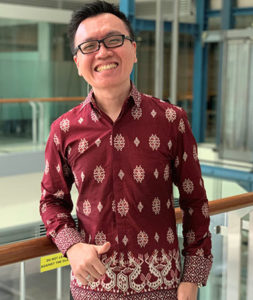 Juneman Abraham (
Juneman Abraham (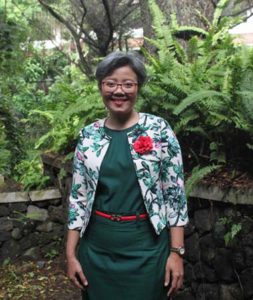 Monica Eviandaru Madyaningrum (
Monica Eviandaru Madyaningrum (



Comments
University of Washington
Charter Member Emeritus
Member Since 01/01/1988
I read the article by Professor Juneman Abraham and Monica Madyaningrum (2023) with great interest. They describe intriguing and useful research that Indonesians are providing to the world, with the goal of effecting “decolonization, and self-determination.” Their stated determination to resist belief systems imposed by colonizers and to incorporate indigenous beliefs into research gave me hope that they would discuss the genocidal regime imposed on West Papua, the land on the western half of the island that is also home to Papua New Guinea.
West Papua briefly became an independent nation in 1961 after the withdrawal of the prior colonizers from so-called “Dutch New Guinea.” A brutal invasion and occupation by Indonesia followed (Free West Papua; Human Rights Watch, 2001). In the ensuing decade, more than a million Indonesian colonists were “transmigrated” and settled on appropriated Indigenist lands. Cities such as Jayapura, Timika, and Sorong are effectively Indonesian, with few Indigenous residents in evidence. Cenderawasih Bay, now a scuba diver destination due to its whale shark populations, has a long history as one of the resting places for the many ‘disappeared’ Papuans.
Papuans seeking higher education face severe racial discrimination in Indonesian universities. Dehumanizing posters and attacks by racist mobs stimulated demonstrations in 2019, followed by security force reprisals (arbitrary arrests, torture, extrajudicial killings and mass forced displacement) that continue (Human Rights Watch, 2022). Unfortunately, West Papua is cursed with many natural resources, including virgin forests, gas, oil, and one of the richest gold and copper mines in the world (operated by the Phoenix, AZ company, Freeport-McMoRan and the Anglo-Australian Rio Tinto). Resource extraction provides great riches to the Indonesian government, military and political figures, while killing Papuan life downriver (Shulman, 2016).
Although I had briefly hoped that the Abraman & Madyaningrum article might contain support for Indigenous Papuan traditions and wellbeing, I quickly realized how dangerous such public support could be for authors. Given that reality, I am grateful to Juneman Abraham and Monica Madyaningrum for reminding us of the importance of Indigenous religion and belief systems in human behavior and wellbeing.
Karin Frey, University of Washington
Free West Papua (n.d.) History of West Papua. Retrieved January 24, 2023, from
https://www.freewestpapua.org/info/history-of-west-papua/
Human Rights Watch (July 1, 2001). Indonesia: Violence and political impasse In Papua. III. The
context: Emergence of the independence movement and the government’s response.
https://www.hrw.org/reports/2001/papua/PAPUA0701-03.htm
Human Rights Watch (2022, August 15). Indonesia: Free imprisoned Papua activists: Three years after anti-racism protests, dozens remain jailed. https://www.hrw.org/news/2022/08/15/indonesia-free-imprisoned-papua-activists
Schulman, S. (2016, November 2). The $100bn gold mine and the West Papuans who say they are counting the cost. The Guardian. https://www.theguardian.com/global-development/2016 /nov/02/100-bn-dollar-gold-mine-west-papuans-say-they-are-counting-the-cost-indonesia
APS regularly opens certain online articles for discussion on our website. Effective February 2021, you must be a logged-in APS member to post comments. By posting a comment, you agree to our Community Guidelines and the display of your profile information, including your name and affiliation. Any opinions, findings, conclusions, or recommendations present in article comments are those of the writers and do not necessarily reflect the views of APS or the article’s author. For more information, please see our Community Guidelines.
Please login with your APS account to comment.